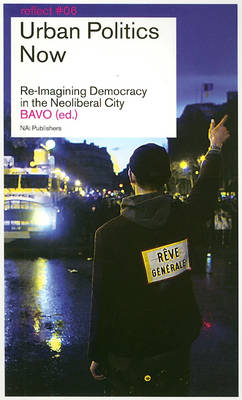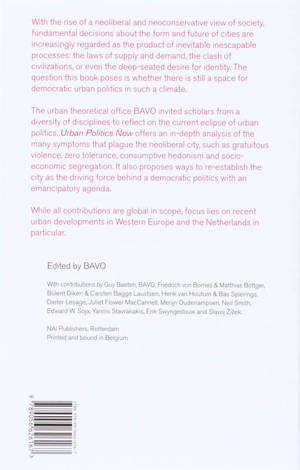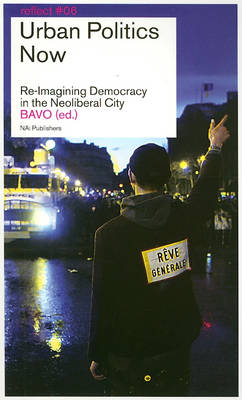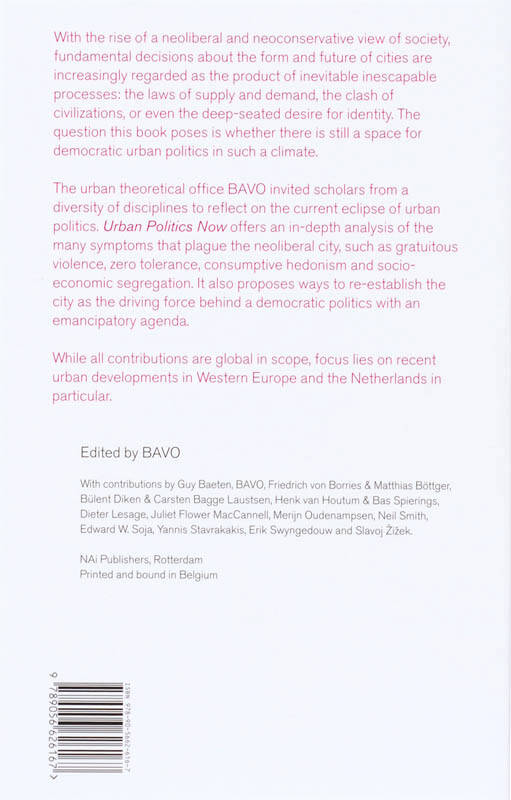
- Afhalen na 1 uur in een winkel met voorraad
- Gratis thuislevering in België vanaf € 30
- Ruim aanbod met 7 miljoen producten
- Afhalen na 1 uur in een winkel met voorraad
- Gratis thuislevering in België vanaf € 30
- Ruim aanbod met 7 miljoen producten
Zoeken


Urban Politics Now
Re-Imagining Democracy in the Neoliberal City. Reflect Series No. 6
€ 52,45
+ 104 punten
Omschrijving
In Urban Politics Now, the Rotterdam-based "architect philosophers" Gideon Boie and Matthias Pauwels--otherwise known as The BAVO Bureau for Architectural Theory--issue a challenge to sociologists, social geographers, philosophers, urban planners and architects, asking, "What ails contemporary urban politics?" Boie and Pauwels involve a few global heavy-hitters whose lengthy, hyphenated titles signal their engagement with multiple disciplines, like Slovenian-born philosopher, sociologist and cultural theorist Slavoj Zizek--who, a few years ago, wrote some Lacanian-style copy for an Abercrombie & Fitch catalogue to accompany Bruce Weber's mildly salacious photographs--and New York's Neil Smith, who trained as a geographer and now teaches urban, cultural and environmental anthropology at the CUNY Graduate Center. Having stated as part of their mission that, "It is only by conceiving architecture as a symptom that its potential to make a difference in society can be assessed and/or enhanced," BAVO asks here if democratic urban politics are possible in the contemporary climate--with neoliberals and neoconservatives on the rise, environmental concerns on everyone's mind and an eruption of increasingly heated cultural differences plaguing every city in the world. If the symptoms of such ills are violence, socioeconomic disparities and hedonistic consumerism, what are the cures? An ability to reconfigure familiar disciplines seems a good start.
Specificaties
Betrokkenen
- Uitgeverij:
Inhoud
- Aantal bladzijden:
- 240
- Taal:
- Engels
- Reeks:
- Reeksnummer:
- nr. 6
Eigenschappen
- Productcode (EAN):
- 9789056626167
- Verschijningsdatum:
- 1/03/2008
- Uitvoering:
- Paperback
- Formaat:
- Trade paperback (VS)
- Afmetingen:
- 152 mm x 227 mm
- Gewicht:
- 376 g

Alleen bij Standaard Boekhandel
+ 104 punten op je klantenkaart van Standaard Boekhandel
Beoordelingen
We publiceren alleen reviews die voldoen aan de voorwaarden voor reviews. Bekijk onze voorwaarden voor reviews.











